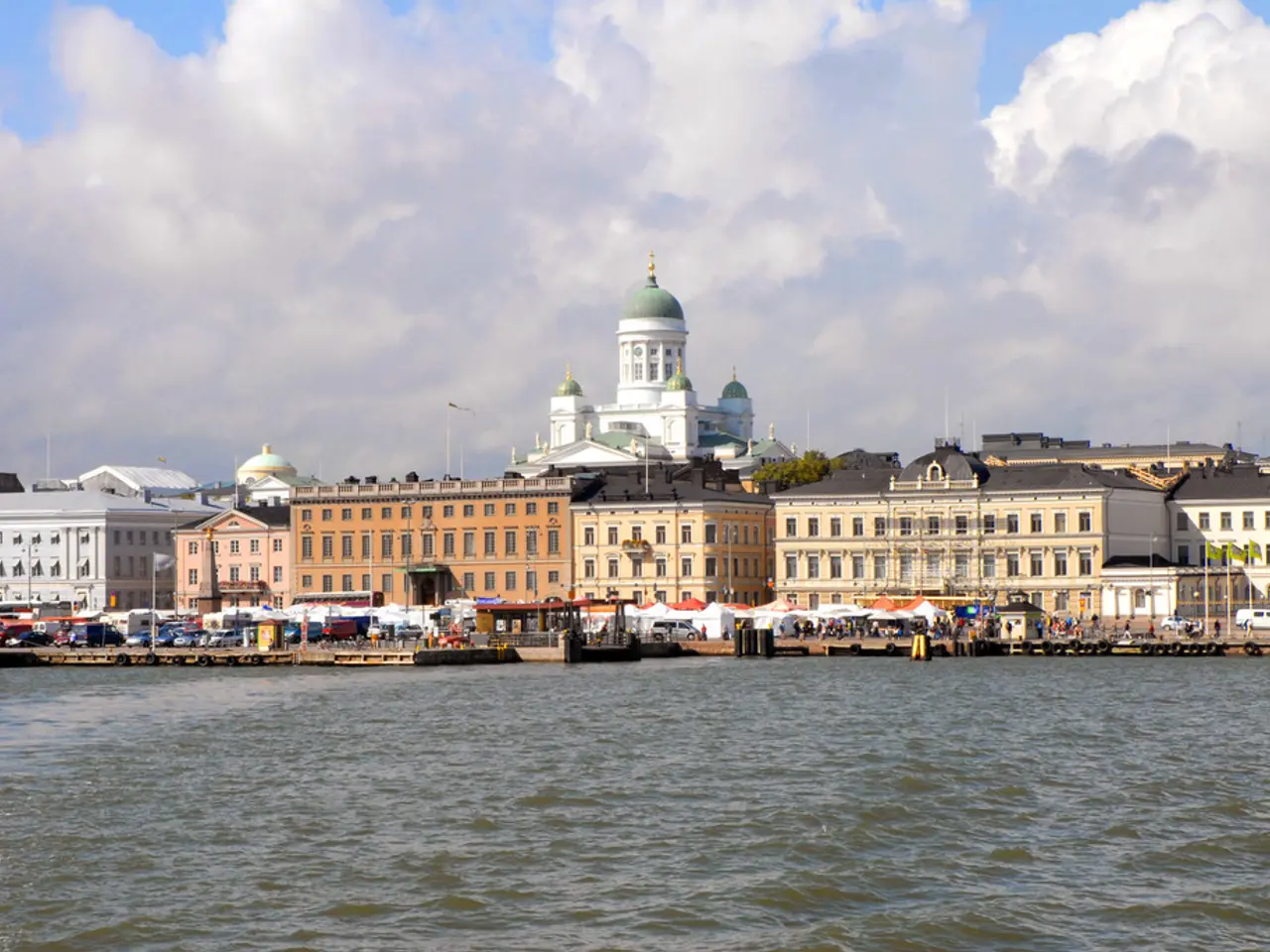Bizarre Partnership: Netanyahu's Israel with Europe's Radical Conservatives
In a surprising political move, Yair Netanyahu, the prime minister's son, became a poster figure for Germany's Alternative für Deutschland (AfD) after his tweet calling for the European Union's demise. This incident marked the beginning of a significant political strategy for Israeli Prime Minister Benjamin Netanyahu, who aimed to forge a diplomatic alliance offering Israel's expertise in security, cyber, high tech, agriculture, and technology in exchange for support from the Visegrád Four (V4) at EU and UN forums.
This alliance, however, is not just about pragmatic diplomacy. It represents a political and ideological alignment that bolsters Netanyahu’s power domestically and internationally. On the domestic front, the alliance cements Netanyahu’s hold on power, as the far right helps block more moderate or left-wing peace initiatives and frames the Palestinian issue as a security threat akin to terrorism.
Internationally, the alliance provides Netanyahu with political leverage. While many EU countries and traditional allies are critical of Israel’s actions in Gaza and its settlement policies, far-right parties often defend or downplay Israeli government actions, thus softening European criticism toward Netanyahu’s government.
However, this alliance also deepens controversies and divisions over Israel’s policies toward Palestinians. Netanyahu's coalition in Israel includes far-right, ultranationalist, and Jewish supremacist parties, which has tied his leadership to extremist positions on Palestinian statehood and territorial sovereignty.
The nature of this alliance is pragmatic and ideological. Netanyahu relies on far-right and ultra-Orthodox parties to maintain his governing coalition and power in Israel, making him politically dependent on their support. These far-right European parties share similar nationalist, anti-immigration, and often Islamophobic views that resonate with Netanyahu’s hardline stance regarding Palestinians and Iran, creating natural allies abroad.
This relationship allows Netanyahu to gain international backing or at least sympathetic voices within Europe’s far right, even as traditional Western allies distance themselves or criticize Israel's policies. The significance of this alliance lies in its ability to provide domestic survival, international political leverage, and polarize global discourse.
In February 2019, Jerusalem was set to host the first V4 summit outside Europe, but it was cancelled due to a diplomatic dispute between Israel and Poland. Despite the cancellation, Prime Minister Netanyahu proceeded to host the prime ministers of Hungary, Czechia, and Slovakia at his residence.
Under Netanyahu’s leadership, Israel strengthened its ties with European radical-right populist parties and governments to sustain its settlement expansion in the Occupied Palestinian Territories. This strategy proved successful, leading to increasingly close ties between Israel and the V4 nations. Netanyahu, during Orban's visit to Israel in 2019, emphasized the strong bond between Israel and Hungary, stating that the two countries share common values and interests.
V4 members demonstrated their support for Netanyahu's government through various diplomatic actions, such as establishing a Czech House in Jerusalem, announcing plans for a Slovakian cultural and trade office, and opening a trade office in Jerusalem that Hungary designated as a branch of its Israeli embassy.
This alliance, however, has not been without controversy. Vlaams Belang, a Belgian party, ardently supports Israel despite its founders' Nazi collaboration and past leadership's Holocaust scepticism. Alexander Gauland of the AfD declared in the Bundestag that Hamas celebration on German streets is unbearable and demanded that German citizenship be revoked from Hamas supporters.
In conclusion, Netanyahu’s alliance with European far-right parties represents a significant political strategy that strengthens his government’s hardline policies domestically and gains him some international ideological allies, but simultaneously isolates Israel from many traditional democratic partners and intensifies global polarization over the Israeli-Palestinian conflict.
- The alliance between Netanyahu's government and European far-right parties, such as Germany's Alternative für Deutschland (AfD), signals a shift in political strategy that echoes in the realm of science, education, and self-development, as both parties share similar ideologies that often lean toward nationalism and anti-immigration sentiments.
- The convergence of ideologies between Netanyahu and these far-right parties extends beyond politics, into the realms of lifestyle and entertainment, as their mutual rise to prominence on social media platforms like Twitter demonstrates a shared ability to connect with and mobilize their supporters.
- In the face of criticism from traditional allies, this alliance has allowed Netanyahu to boost his political leverage in finance and technology, as far-right parties often downplay Israeli actions in Gaza and support its settlement policies, thereby dampening European criticism and potentially opening doors for collaborative projects in these sectors.
- The impact of this alliance reaches beyond diplomatic forums, shaping the discourse on crime and justice, as international support from the far-right provides a platform for Netanyahu to frame the Palestinian issue as a security threat and akin to terrorism.
- Moreover, this alliance has consequences for sports diplomacy, as the increasing ties between Netanyahu's Israel and the V4 nations may influenc the choices of international sporting events hosted by these countries, potentially raising questions about inclusivity and fairness in sports competitions.




